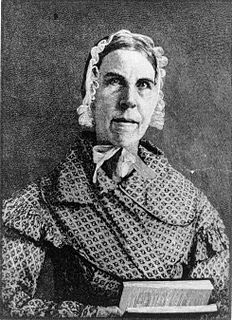A Quote by Margaret Benson
All progress in knowledge takes place through the correction of that which has been received on authority.
Related Quotes
This, therefore, is a law not found in books, but written on the fleshly tablets of the heart, which we have not learned from man, received or read, but which we have caught up from Nature herself, sucked in and imbibed; the knowledge of which we were not taught, but for which we were made; we received it not by education, but by intuition.
The main object of the work was to present such a survey of the advances already made in physical knowledge, and of the mode in which they have been made, as might serve as a real and firm basis for our speculations concerning the progress of human knowledge, and the processes by which sciences are formed.
Each is liable to panic, which is exactly, the terror of ignorance surrendered to the imagination. Knowledge is the encourager, knowledge that takes fear out of the heart, knowledge and use, which is knowledge in practice. They can conquer who believe they can. It is he who has done the deed once who does not shrink from attempting again.
All knowledge or form conception is evoked through the medium of the eye, either in response to disturbances directly received on the retina or to their fainter secondary effects and reverberations. Other sense organs can only call forth feelings which have no reality of existence and of which no conception can be formed.
The worship of the nation has been able to make men tolerate under its authority what they could never have tolerated from princes: a submission to rule, which, through sumptuary laws on food and drink, through conscription, through a cast-iron system of compulsory instruction for all on State ordered lines, and through a State examination at the gate of every profession, has almost killed the citizen's power to react upon that which controls him, and has almost destroyed that variety which is the mark of life.

































